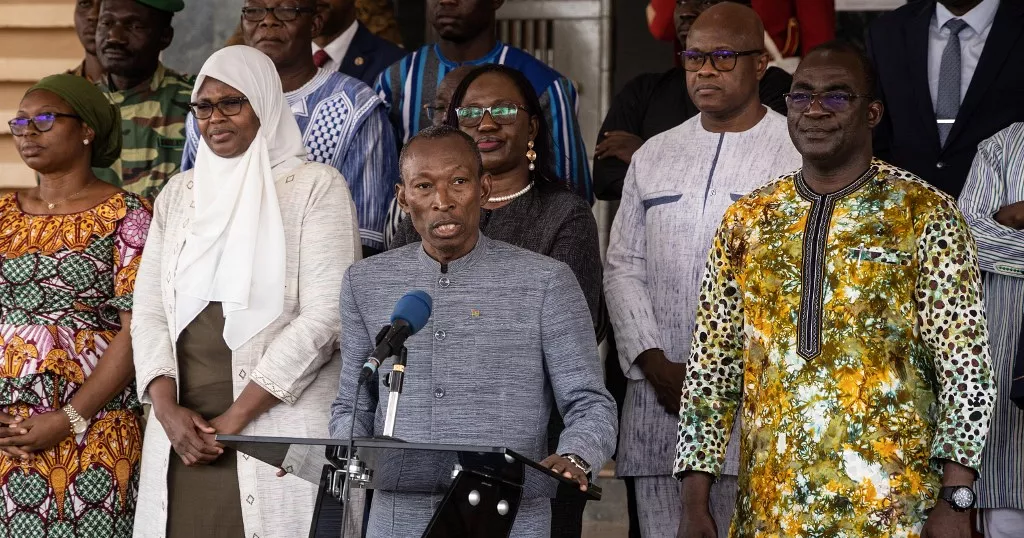
The Burkina Faso Council of Ministers convened on Thursday under the leadership of Captain Ibrahim Traoré, President of Faso, to deliberate on key national policy measures, approve new decrees, and authorise overseas missions.
The session, held from 9:00 to 12:12, addressed a range of issues spanning governance, defence, finance, justice, and education.
The government adopted decrees dissolving two bodies: the National Coordination Centre for the Early Warning and Response Mechanism (CN-CMAPR) and the Strategic Steering Council of the Presidential Initiative “Ensure Every School-Age Child Receives at Least One Balanced Meal Per Day” (COS-IP).
The CN-CMAPR, established in December 2021, provided early warning reports on human security trends across ECOWAS member states.
Its dissolution follows Burkina Faso’s withdrawal from ECOWAS, aligning national structures with new regional commitments.
The COS-IP’s operational functions are now transferred to the Ministry of Basic Education, Literacy, and Promotion of National Languages.
In the defence and industry sector, ministers approved amendments to the statutes of the mixed-economy company TEXFORCES-BF, enabling the national oil company SONABHY to acquire a 7 billion CFA stake to strengthen production capacity for military and security personnel uniforms.
The Council also reviewed the draft 2026 national budget, projecting revenues of 3,431.5 billion CFA francs and expenditures of 3,918.3 billion CFA francs, with a deficit of 486.8 billion CFA francs (2.6% of GDP).
In addition, a new decree mandates that all NGOs and registered associations maintain their accounts exclusively with the Treasury Deposits Bank, ensuring transparency and traceability of financial flows.
Other approved measures include revisions to fees for judicial acts and services, authorisation for Saudi Arabia’s ambassadorial appointment to Burkina Faso, and regulations for permanent residency status for foreigners, strengthening integration and legal clarity.
The Cabinet also approved decrees reshaping key state-owned enterprises, including the Société sucrière de la Comoé (SOSUCO), with enhanced capital structure and governance, alongside mechanisms to stabilise agricultural product prices.
Oral reports highlighted the ongoing seasonal malaria chemoprevention campaign covering 70 districts, and preparations for the Third National Forum on the Elderly, and the 15th National Forum on Scientific Research and Technological Innovation, emphasising industrial revitalisation through innovation.
The Council concluded by announcing multiple high-level appointments across ministries, universities, and public enterprises, ensuring strategic oversight and continuity of key government initiatives.



